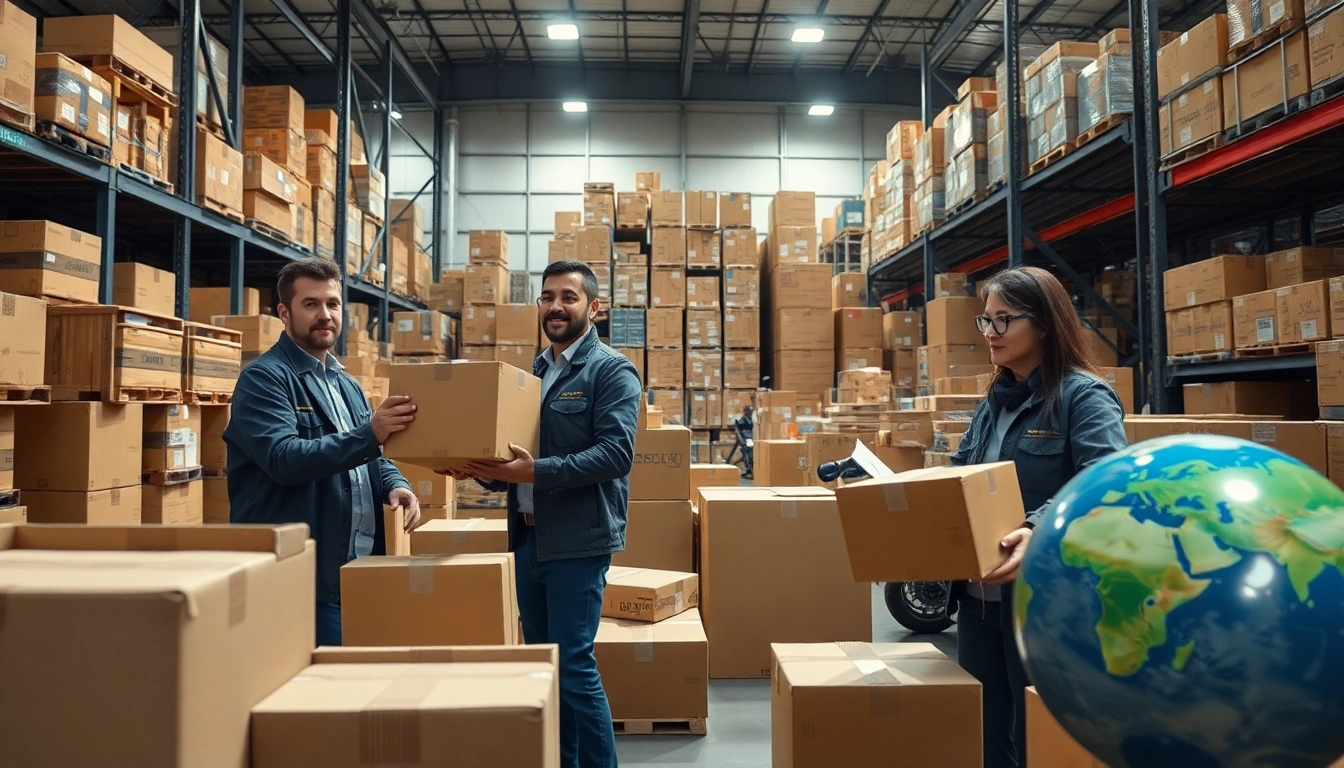What Are Importers and Their Roles in Global Trade?
In the world of commerce, importers play a crucial role in shaping the dynamics of global trade. An importer is a person or business entity that brings goods or services into a country from abroad for the purpose of sale or utilization within the domestic market. Without importers, international trade would be severely hampered, and consumers would face a limited selection of products and services. This article explores the essential functions of importers, their impact on local economies, and the complexities they navigate in their daily operations.
Defining Importers and Their Responsibilities
An importer is typically defined as anyone who buys goods from foreign suppliers and sells them domestically. The responsibilities of importers extend beyond simple purchases; they must ensure compliance with local laws, regulations, and customs procedures. Importers also handle negotiations with foreign suppliers, manage logistics, and maintain relationships with regulatory agencies. Key responsibilities include:
- Researching and selecting suppliers from various countries.
- Managing the transportation of goods, including choosing shipping methods and carriers.
- Ensuring products meet local safety and health standards.
- Filing necessary customs documentation and paying tariffs and taxes.
- Handling logistics and warehousing to maintain product flow within the domestic market.
Types of Importers and Their Functions
Importers can be classified into several categories based on their business models and operational strategies. These include:
- Wholesale Importers: They purchase goods in bulk and sell them to retailers or other businesses. They act as intermediaries between manufacturers and the market, providing a critical link in the supply chain.
- Retail Importers: These are businesses that import goods directly for sale to consumers. Retail importers may focus on niche markets or generic consumer products.
- Service Importers: This category includes businesses that import various services, such as technology and consulting services, rather than physical goods. They play a vital role in sectors like IT and healthcare.
- Direct Importers: These importers purchase products directly from foreign manufacturers. By cutting out middlemen, they can often offer lower prices to consumers.
How Importers Impact Local Economies
Importers are not merely conduits for goods; they significantly influence local economies in various ways:
- Job Creation: By facilitating trade and bringing in diverse products, importers contribute to job creation in logistics, sales, and retail sectors.
- Consumer Choice: Importers enhance consumer choice by offering products from different regions and cultures, promoting competition and quality.
- Tax Revenue: The activities of importers contribute to state and federal tax revenues through tariffs, duties, and sales taxes, supporting public services and infrastructure.
- Innovation: Exposure to global markets allows local businesses to innovate and improve their offerings, as they adapt to international trends and standards.
Legal Requirements for Importers in the U.S.
Entering the U.S. importing market is not without its legal complexities. Importers must navigate a maze of regulations, documentation, and compliance requirements. Below are the key facets of legal operations for importers in the United States.
Essential Documentation for Importation
Documentation is a cornerstone of the importing process. Importers must ensure that they have the following essential documents:
- Bill of Lading: A document issued by the carrier that serves as a receipt and contract for the shipment of goods.
- Commercial Invoice: This document details the transaction between the seller and buyer and is used for customs valuation.
- Customs Entry Form: Required by U.S. Customs and Border Protection (CBP) to declare merchandise and assess duties.
- Import Permits: Specific products may require additional permits or licenses, depending on their nature and the regulations of the importing country.
- Certificates of Origin: These verify the country of origin of the goods and may be required for duty assessments or compliance with trade agreements.
Importer Eligibility and Compliance Regulations
For an entity to operate as an importer, it must be registered with the U.S. Customs and Border Protection. The requirements for eligibility include:
- Having a valid IRS tax identification number.
- Establishing compliance with all relevant import laws.
- Maintaining records of all transactions and shipments for inspection and audits.
Failure to comply with these requirements can result in penalties, customs holds, or investigations that can harm business operations.
Customs Processes Explained
Importers must navigate through numerous customs processes to ensure smooth entry for goods. The steps involve:
- Filing a customs entry with the necessary documentation.
- Payment of applicable duties and taxes based on the valuation of goods.
- Undergoing inspections or screenings as directed by customs authorities.
- Clearing customs for release and distribution to domestic markets.
Understanding these processes can streamline import operations and reduce delays, which is essential for maintaining competitive advantage.
Strategies for New Importers Entering the Market
As a new importer, entering the market can be challenging yet rewarding. Crafting effective strategies is crucial for long-term success. Here are several strategies to consider:
Researching Target Markets and Suppliers
Before making any moves, thorough market research is essential. Understanding consumer preferences, local competition, and legal requirements will shape your approach. Additionally, identifying reliable suppliers is critical. Conducting site visits, negotiating terms, and verifying credentials can mitigate risks associated with sourcing.
Building Relationships with Customs Brokers
Engaging with experienced customs brokers can significantly ease the complexities of importing. They can provide valuable insights into navigating regulations and documentation, reducing entry barriers. Building a long-term relationship with a broker who understands your business can facilitate smoother transactions.
Best Practices for Managing Logistics and Supply Chains
Effective logistics and supply chain management are vital for seamless operations. Here are best practices to implement:
- Invest in Technology: Utilize logistics management software to track shipments, manage inventory, and enhance communication with suppliers and carriers.
- Develop Contingency Plans: Consider potential risks and disruptions. Establish backup suppliers and transportation plans to avoid disruptions.
- Maintain Transparent Communication: Foster clear communication with all stakeholders, including suppliers, customers, and logistics partners, to ensure a coherent flow of information.
Challenges Facing Modern Importers
The landscape of importing is fraught with challenges that can hinder operations and profitability. Understanding these issues is crucial for developing strategies to address them effectively.
Navigating Tariffs and Trade Agreements
Tariffs and trade agreements significantly impact the cost structure of imported goods. Importers must stay informed about changing tariffs and their implications on pricing. Leveraging free trade agreements can provide advantages, but a lack of awareness can lead to increased expenses and lost opportunities.
Addressing Supply Chain Disruptions
Global events, such as pandemics or geopolitical tensions, can disrupt supply chains. To mitigate risks:
- Diversify suppliers across different regions.
- Invest in predictive analytics to anticipate disruptions.
- Establish flexible contracts that allow for adjustments as conditions change.
Adapting to Technological Changes in Importing
The rapid advancement of technology has transformed importing processes. Importers need to adapt to new tools, such as blockchain for tracking shipments and AI for demand forecasting. Embracing digital transformation not only improves efficiency but also enhances competitiveness in the market.
Success Stories: Leading Importers in the Industry
Understanding the journeys of successful importers can provide inspiration and valuable insights for newcomers in the market. Here are some case studies to explore:
Case Studies of Successful Importers
Companies such as Walmart and Target exemplify how strategic sourcing and supplier relationships can lead to significant market share in the importing sector. Their ability to leverage negotiating power and efficient logistics systems enables them to offer low prices and a wide selection of products.
Innovative Approaches in the Importing Sector
Innovative importers are redefining traditional methods by adopting sustainable practices, such as using eco-friendly materials and implementing fair trade policies. These approaches not only respond to consumer demands for ethical products but also enhance brand loyalty and market reputation.
Lessons Learned from Top Importing Companies
Diverse experiences from leading companies often reveal fundamental lessons. A strong focus on supply chain management, continual market analysis, and investing in relationships can result in resilience and adaptability—factors that are crucial during economic downturns or sudden market shifts.



